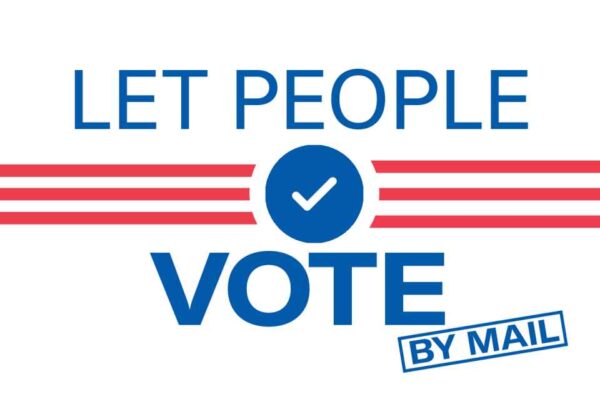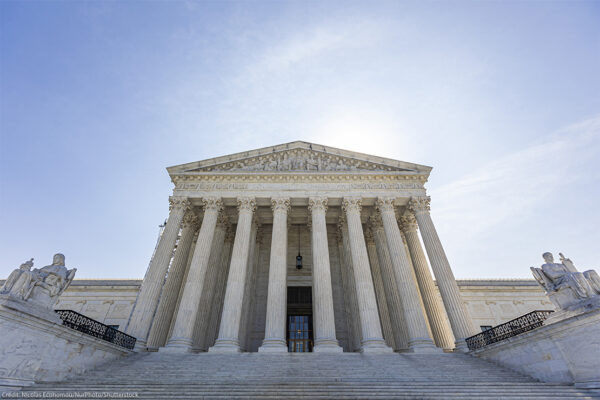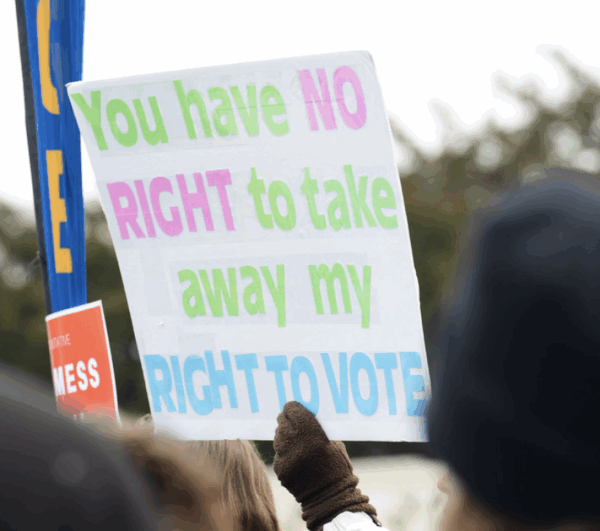Supreme Court Orders Re-Argument of Louisiana Redistricting Case for Next Term
WASHINGTON, D.C. ā Today, the U.S. Supreme Court issued an order to reargue the case of Louisiana v. Callais and will later issue an order scheduling the argument and specifying any additional questions that will need to be addressed in the case.
Louisianaās current map with two majority-Black districts remains in effect. The re-argument of the case will likely occur during the fall.
Louisianaās current congressional map, known as S.B. 8, was drawn in response to a separate lawsuit, Robinson v. Ardoin (later Robinson v. Landry). In that earlier case, brought by the NAACP Louisiana State Conference, Power Coalition for Equity and Justice, and nine individual Black voters, a federal court in Baton Rouge found that Louisianaās 2022 map likely violated Section 2 of the Voting Rights Act (VRA) by packing Black voters into a single majority-Black district and diluting the voting strength of Black voters in other districts. That part of the decision was upheld by two separate panels of the Fifth Circuit Court of Appeals. Presented with these decisions, the State faced a choice between drawing a new map itself or accepting a court-imposed map, over which lawmakers would have little or no control.
Louisiana Governor Jeff Landry and legislative leaders determined it was in the Stateās best interest to develop their own map that could satisfy the VRA and the courts. In January 2024, S.B. 8 became law, but it did not follow the plan that had been presented to the court in Robinson. Most notably, it was drawn to protect powerful incumbents in Louisianaās congressional delegation, including U.S. House Speaker Mike Johnson, and unite communities with shared interests along the Red River and I-49 corridor.
Shortly after SB8ās enactment, a group of self-described ānon-African American votersā challenged the map as a racial gerrymander in violation of the 14th Amendment in Callais v. Landry. They claimed the map violated the Equal Protection Clauseās prohibition against the use of race as the predominant motivating factor in map drawing, absent a compelling reason. The plaintiffs from Robinson intervened as defendants in the case to protect the new voting opportunities S.B. 8 provided to Black Louisianans and decades of precedent, in which the Supreme Court has repeatedly reaffirmed that it is not an unconstitutional racial gerrymander for states to remedy Voting Rights Act violations with new maps that also consider other factors like incumbency protection. After a divided three-judge district court panel struck down S.B. 8, the Robinson clients and state defendants appealed to the Supreme Court.
Pending its resolution of the appeal, the Supreme Court stayed the lower courtās ruling, leaving S.B. 8 in place for the time being. As a result, the 2024 election went forward under S.B. 8, allowing Black Louisianans to elect their preferred candidate in two congressional districts.
The Robinson clients and counsel provided the following statements in response to the Supreme Courtās decision today:
"Before this case ever began, we had already won a hard-fought legal battle, proving that the legislatureās initial map, like Louisianaās maps for generations before, illegally diluted Black votersā political power,ā said Cecillia Wang, National Legal Director for the Ķųŗģ±¬ĮĻ. āThanks to the Supreme Court's order from May 2024, which put the district courtās injunction on hold, the fair and legal map the Louisiana legislature enacted in response to our litigation remains in place while the case continues. We will be back next term to once again defend the new map and the representation Black voters deserve."
āA fair and equitable congressional map has always been our North Star,ā said Ashley Shelton, President/CEO of Power Coalition for Equity and Justice. āTodayās decision deferring the case does not shake our focus on that goal. We will continue to advocate for a map that reflects our communities and upholds the hope of true and substantive political representation, and we look forward to using this opportunity to continue to build Black political power for our beloved communities across Louisiana and the nation.ā
āBlack voters in Louisiana continue to face persistent and documented discrimination. A map with two districts where Black voters have an opportunity to elect candidates of choice, as S.B. 8 has, is critical to ensuring Black voters can have their voices heard,ā said Stuart Naifeh, Supreme Court oralist in Callais and redistricting manager for the Legal Defense Fund (LDF). āThat is the promise of the Voting Rights Act, and we will continue to fight on behalf of our clients and Black voters across the State of Louisiana to achieve a fair congressional map."
āNow we have another chance to make sure that the promise of equal representation for Louisianaās Black population is fulfilled,ā said Alanah Odoms, Ķųŗģ±¬ĮĻ of Louisiana Executive Director. āMake no mistake: Black Louisianans are entitled to the same fair and representative maps as voters anywhere in this country. We remain steadfast in our commitment to that pursuit ā until equality is not just promised, but realized.ā
āOur fight continues,ā said Michael McClanahan, President of the NAACP Louisiana State Conference. āWe know that justice must be served. From the beginning of this process, we have shown it is not only possible but essential to have fair representation for Black communities. We will continue to advocate for fair maps and to ensure the promise of the Voting Rights Act is upheld. We wonāt stop until victory is won.ā
āToday is not the end of our journey. The fight for an equitable democracy continues,ā said Alora Thomas-Lundborg of the Harvard Election Law Clinic. āVoters in Louisiana took a stand for their rights and we will work to ensure that the Court hears them and everyone who believes in the continued dream of an equitable American democracy.ā
āThis case is critically important not just for our clients, but for every Black voter in Louisiana and across this country who believes in the promise of equal representation, and todayās order calling for re-argument does nothing to change that,ā said Tracie Washington of the Louisiana Justice Institute. āWe remain committed to fighting for fair maps and a democracy where every vote counts. I want to thank our courageous clients, who put their faith in this process, and my remarkable co-counsel, who have poured their hearts into this case. Our work continues and our resolve is unwavering.ā
The Robinson appellants ā the NAACP Louisiana State Conference, the Power Coalition for Equity and Justice, and nine individual Black voters ā are represented by the Legal Defense Fund, Ķųŗģ±¬ĮĻ, Ķųŗģ±¬ĮĻ of Louisiana, Paul, Weiss, Rifkind, Wharton & Garrison LLP, and Louisiana attorneys John Adcock and Tracie Washington.
Court Case: Callais v. Landry
Affiliate: Louisiana



